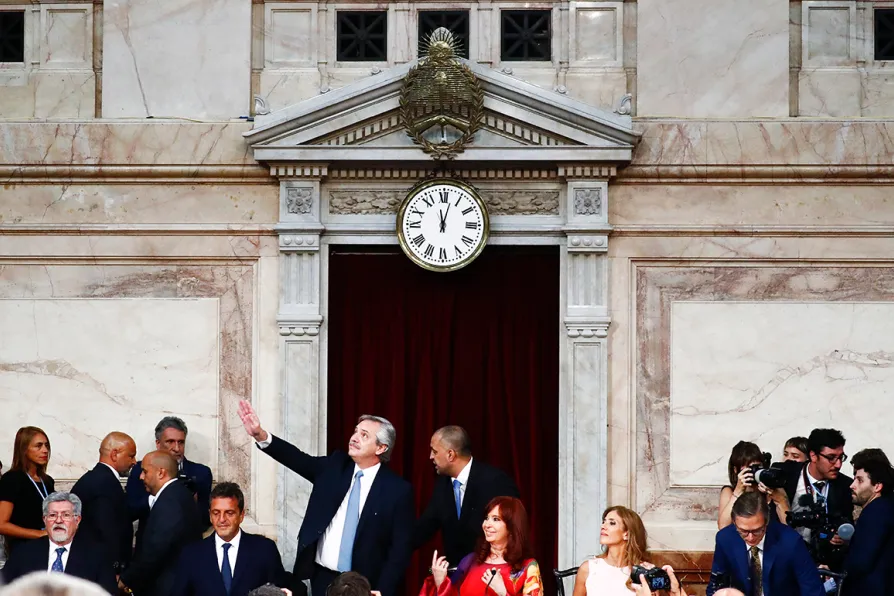Investigators says Ukraine may be behind the attack
Argentina strikes IMF deal – but Fernandez faces struggle to get it through congress

 Argentina president Alberto Fernandez
Argentina president Alberto Fernandez
ARGENTINA’S government has struck a deal with the International Monetary Fund (IMF) to refinance a $45 billion (£34bn) debt.
President Alberto Fernandez faces an uphill struggle to push the unpopular deal through Congress, since it instructs Buenos Aires to slash energy subsidies which will mean price rises of up to 150 per cent in household energy bills.
Ally Maximo Kirchner — son of former presidents Nestor Kirchner and Cristina Fernandez, the latter of whom is still vice-president — resigned as head of the parliamentary coalition supporting the government on January 31 in protest against the IMF’s terms, and many government MPs say the debt is “unpayable.”
Similar stories

After brutal police crackdowns on pensioners and the forced approval of secret IMF deals, trade unions are finally responding to grassroots pressure and fighting back against savage neoliberal reforms, reports BERT SCHOUWENBURG

Long having been considered the ‘US’s backyard,’ Latin America is the crucible of anti-imperialist struggle – yet with the rise of China as an economic and ideological counterweight to Washington, we see a new phase of that struggle emerge, writes BEN CHACKO

BEN CHACKO appreciates the largest Adelante! conference yet, and how much there was to learn about decolonisation and defiance across Latin America and beyond











